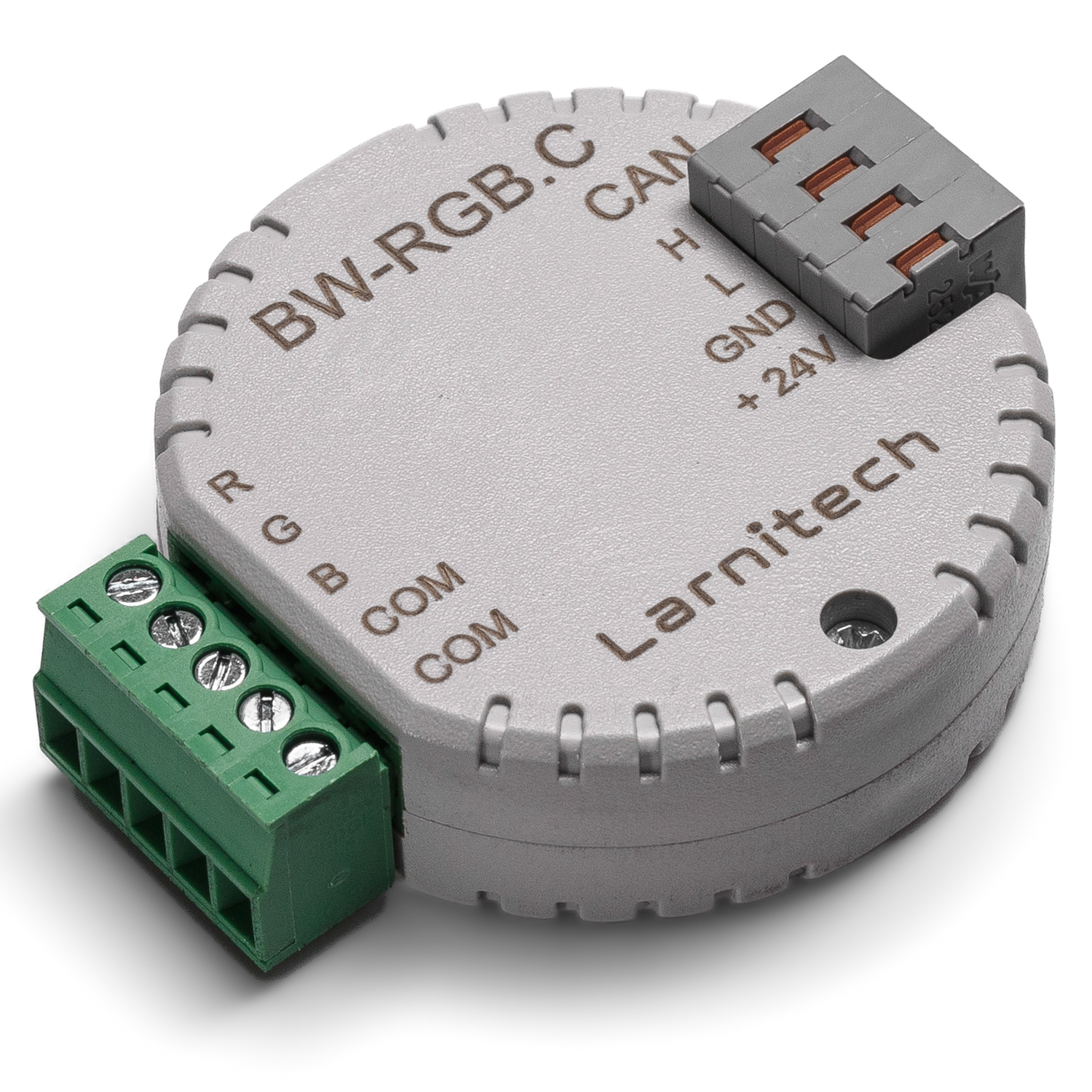| BW-RGB.C | |||||||
|---|---|---|---|---|---|---|---|
 | |||||||
| |||||||
| |||||||
3-CHANNEL LED CONTROLLER
This module allows controlling RGB strip or three monochrome LED strips.
CAUTION! All work related to the installation, connection, setting up, service and support must be carried out by qualified personnel with sufficient skills and experience in working with electrical equipment. To avoid the risk of fire, electric shock, damage to the system and/or personal injury, the system installation and assembly must be performed in accordance with the instructions listed below:
- all connectivity work must be carried out with the power turned OFF;
- use appropriate tools and personal protection against electric shock;
- do not use damaged cables, wires and connectors;
- avoid folding the cables and wires;
- do not apply excessive force to the wires by kinking or pressing them too hard: the inner conductors of the cables and wires may get stripped or damaged;
- do not use the power socket with poor contacts to connect;
- do not exceed the load limit parameters specified in the manual;
- the supply conductors wire section is subject to the specifications for current density limit, insulation type and wire material. Light section can result in cable overheating and fire.
When the power is on, NEVER:
- connect/disconnect the connectors;
- open modules and sensors.
Example of connection
Example of connection RGB LED with Amp
Module parameters
| Parameter name | Value |
|---|---|
| Output channels qty | 3 |
| Input voltage | 11.5 … 25V |
| Current type | DC |
| Adjustment type | PWM |
| Max load per channel | 1A (12W at 12V) |
| Max load per device | 3A (36W at 12V) |
| Power supply | 11.5 … 27.5 V DC from CAN |
| Max current(24V) | 25 mA |
| Bus type | CAN (4-wire) |
| Equipment installation type | Free |
| Case material | ABS |
| Protection | IP40 |
| Temperature range | -10 … +50 °C |
| Size | 45x42x14 mm |
| Weight | 25 g |
Module installation and connection procedure
- Connect the outputs.
- Connect the CAN connector.
- Configure the module using LT setup.
- Apply power to the load.
- Check all equipment for proper operation.
Module shut-off and deinstallation procedure
- Disconnect the power from the load.
- Disconnect the CAN connector.
- Disconnect the outputs.
HW settings
| Name | Type, range | SUBID | Default | Description |
|---|---|---|---|---|
| dm | char[3] | 98 | 'RGB' | Each char is responsible for the type of a particular channel, RGB takes 3 channels
Example: dm='DDD' |
| def | integer 0-250 | 1-3 | 100 | The default brightness level in case of a power reset (1..250). Example: def=250 |
| min | integer 0-100 | 1-3 | 0 | Minimum dimming level, example: min=10 |
| max | integer 0-100 | 1-3 | 100 | Maximum dimming level, example max=95 |
| runtime | integer 0-100 | 98 | 5 | Runtime is the speed of changing the brightness(measured in seconds). Example: runtime=15 |
| f | integer 1-1000 | 98 | 500 | It is frequency (measured in Hz); Example: f=500 |
1<item addr="355:1" auto-period="600" cfgid="175" name="Dimmer" type="dimer-lamp" uniq_id="68"/>
2<item addr="355:2" auto-period="600" cfgid="175" name="Dimmer" type="dimer-lamp" uniq_id="69"/>
3<item addr="355:3" auto-period="600" cfgid="175" name="Dimmer" type="dimer-lamp" uniq_id="70"/>
4<item addr="355:98" cfgid="175" hw="dm='DDD' f=1000 runtime=20" name="Temperature" system="yes" type="temperature-sensor" uniq_id="47"/>